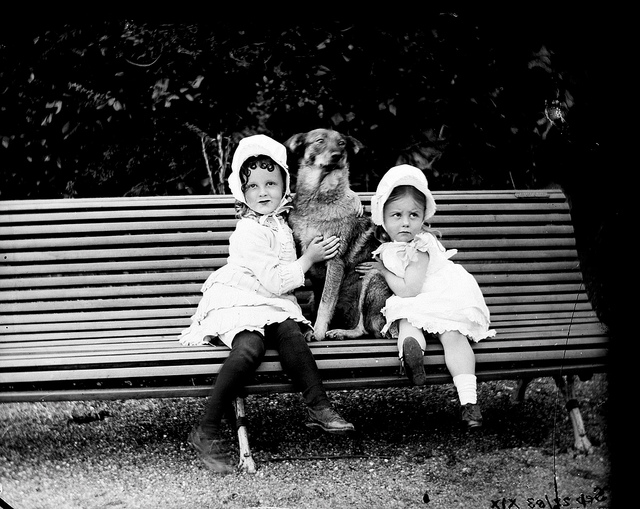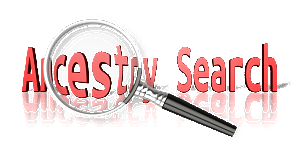Did your Irish ancestors have a dog? Over 3.5 million Irish Dog Licence registers have been added to a collection already online at

“More Besties from the Clonbrock Estate.” Taken September 22, 1883. National Library of Ireland photograph, posted at Flickr Creative Commons National Library of Ireland on the Commons page. No known copyright restrictions.
FindMyPast. “Now containing over 6 million records, the Irish Dog Licences list not only the name, breed, colour and sex of your ancestor’s four legged friend, but also the owner’s address and the date the licence was issued, making them a valuable census substitute,” says a recent FMP press release.
Also new on the site are other notable collections, as described by FMP:
- Trade Union Membership registers (3.4 million+ records) with digitized images of original records books from 9 different unions. The documents include details about individual members such as payments made, benefits received, names of spouses, and a number of unions published profiles of their members or those who held offices. Many unions kept detailed records for when a member joined, paid their subscription, applied for funeral benefits or superannuation (retirement). These records allow you to follow your ancestor’s progress within the union and perhaps uncover previously unknown details of their working lives and careers. The documents can also include details about the trade unions themselves, such as directories of secretaries, meeting dates and times and items of trade union business. Many trade unions also included international branches from Ireland to Australia to Spain and Belgium.
- Indexes to over 28,000 articles in 2000+ PERSI-indexed periodicals. These include magazines, newsletters and journals, according to location, topic, surname, ethnicity and methodology. (Learn more about PERSI on FindMyPast in our blog post on the topic.)
- Peninsular War, British Army Officers 1808-1814 dataset, compiled by Captain Lionel S. Challis of the Queen’s Westminster Rifles shortly after WW1. Using Army lists, Gazettes, despatches, official records and regimental histories, Challis gathered information on more than 9,600 officers who fought for control of the Iberian Peninsula during the Napoleonic Wars and recorded them on index cards. Each record contains an image of the original handwritten index cards and a transcript.
- South Australia Births 1842-1928. Over 727,000 records and date back to when the compulsory registration of births first began in 1842. Sourced from an index transcribed by volunteers from the South Australian Genealogy and Heraldry Society Inc., each records consists of a transcript that usually includes the child’s full name, gender, date of birth, place of birth and registration number. The names of both parents will also be included and in some cases the mother’s maiden name will also be present. South Australia’s colonial origins are unique in Australia as a freely settled, planned British province.
- South Australia Marriages 1842-1937 contain over 457,000 records. Each record includes a transcript that can contain a variety of information such as the first and last names of the bride and groom, their ages, birth years, marital status, the date and place of their marriage as well as their fathers’ first and last names.
- South Australia Deaths 1842-1972 contain over 605,000 records and span 130 years of the state’s history. Each record consists of a transcript that usually lists the deceased’s full name, gender, status, birth year, date of death, place of death, residence, the name of the informant who notified authorities of their death and their relationship to the informant.
 Are you making the most of your online searches at FindMyPast and other genealogy websites? What about on Google? Learn more about search strategies that work in this blog post!
Are you making the most of your online searches at FindMyPast and other genealogy websites? What about on Google? Learn more about search strategies that work in this blog post!




